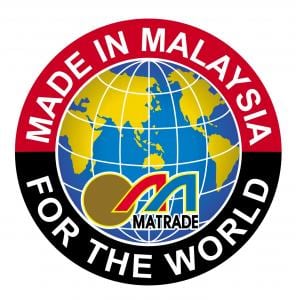
SHANGHAI (Sept 10): Malaysia will benefit from potential new investments in the halal industry from China, worth RM4 billion, said Deputy Prime Minister Datuk Seri Dr Ahmad Zahid Hamidi.
He said the huge investment potential was a result of his and the Malaysian delegation’s meetings with Chinese halal industry players on Tuesday, in conjunction with the Malaysia-China Halal Business Forum here.
He said the investments cover various sectors, including herbal medicine, food and beverages, vaccines, cosmetics and pharmaceuticals.
“As of this afternoon, there are 40 companies (from China) that are very serious about investing in Malaysia, and according to our estimates, it is worth RM4 billion.
“Of course their products are a priority, including food and drinks. There are also (investment requests related to) pharmaceuticals, cosmetics, vaccines and herbal medicinal materials,” he said at a press conference with the Malaysian media that followed his five-day working visit to China.
Earlier, he delivered a key speech at a forum organised by the Halal Development Corporation (HDC), which was attended by industry players from Malaysia and China.
Ahmad Zahid, who is also the rural and regional development minister, said there was also a big demand from investors in the field of herbal medicine in Malaysia, who want to collaborate with local universities and the Malaysian Agricultural Research and Development Institute (Mardi).
He said there is currently an area of ??5,787 hectares dedicated to the halal industry in Malaysia, and the largest area is in Tanjung Mas, Sarawak, which has 9,900 acres.
Ahmad Zahid said several Chinese halal companies have expressed interest in opening their factories in Malaysia, as a result of the meetings.
For that purpose, he said the state government should simplify the procedures for investors, especially in relation to the provision of infrastructure, including water and power, in addition to incentives such as tax exemptions.
“What we need are investors, and Chinese companies want to market their halal products from Malaysia. For that, they plan to set up factories in Malaysia and obtain Jakim’s halal certificate, which will allow them to export abroad,” he said.
Ahmad Zahid said that in a meeting with the Asian Development Investment Bank from China, it was found that those who are ready to offer investment funding at the initial stage amounted to US$500 million (RM2.17 billion).
Meanwhile, Ahmad Zahid said during his special remarks at the Malaysia-China Halal Business Forum that Malaysia’s strategic location in Southeast Asia makes it an ideal hub for halal trade.
He said Malaysia is committed to becoming not only the halal hub for Asean, but also a leading global halal hub, and to further the effort, Malaysia is proposing the establishment of a Malaysia-China Halal Trade Corridor.
“This initiative would strategically boost halal trade within the framework of the One Belt One Road initiative.
“It would allow us to better meet the halal needs of BRICS nations, Asean and the Global South, while streamlining trade between China and Malaysia for a more efficient supply chain,” he said.
He explained that Malaysia will develop a dedicated trade highway through this corridor, featuring bi-nation halal one-stop centres. These centres would simplify import and export processes, provide clear protocols, offer specialised halal logistics, and ensure smooth access to local markets for both nations, he added.


